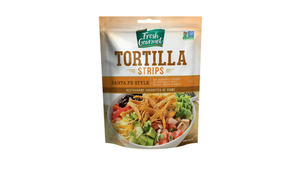ORC a “Gateway Crime”: Kroger
NEW YORK — Organized retail crime, responsible annually for billions of dollars of theft from retailers, is a "gateway crime" linked to narcotics trafficking, counterfeiting of U.S. and foreign currency, and illegal gun activity, said Dennis Dansak, corporate manager, organized retail crime (ORC), The Kroger Co.
January 13, 2011
MICHAEL GARRY
NEW YORK — Organized retail crime, responsible annually for billions of dollars of theft from retailers, is a "gateway crime" linked to narcotics trafficking, counterfeiting of U.S. and foreign currency, and illegal gun activity, said Dennis Dansak, corporate manager, organized retail crime (ORC), The Kroger Co.
The association of ORC with more high-profile crimes is helping retailers to attract the attention of law enforcement agencies to ORC, which is sometimes regarded by legal authorities as garden-variety shoplifting, Dansak noted during a session this week at the National Retail Federation’s 100th Annual Convention & Expo here.
In fact, the vast majority of Kroger’s ORC cases “have led law enforcement not only to make arrests for those cases, but to initiate investigations into other criminal activity,” said Dansak. “Law enforcement knows if we have an ORC booster in custody, they’re going to have an informant into other criminal activity.” More than 90% of ORC boosters (the individuals who steal from stores) are narcotics users, he added.
"We need law enforcement to partner with us to get ORC cases investigated and to make arrests," he added. "This is not shoplifting where a 16-year-old girl is grabbing eye-liner."
ORC thefts nationally in 2009 have been estimated by industry sources to be between $15 billion and $30 billion.
About the Author
You May Also Like






